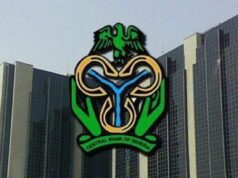TUE 09 MARCH, 2021-theGBJournal- UBA plc released audited 2020FY numbers yesterday evening, which showed that the bank recorded a strong performance for the period. Impressively, the bank recorded growth in both core and non-core income lines despite the pressured operating environment during the fiscal year.
Key Highlights
Gross earnings grew 10.8% to N620.4 billion
Profit Before Tax N131.860 billion
EPS of N3.20
Final Dividend of N0.35
Interest Income growth of 5.7% to N427.86 billion
On the EPS of NGN3.20 (2019FY: NGN2.52), the board has proposed a final dividend of NGN0.35/s (vs. 2019FY: 0.80/s), which equates to a yield of 4.4% based on the closing price of NGN8.00 as of the 8th of March 2021.
Interest income increased by 5.7% y/y to NGN427.86 billion supported by the growth across major contributory lines, with the largest contributions coming from loans and advances to customers (+8.2% y/y to NGN225.04 billion) and banks (+150.5% y/y to NGN9.52 billion), as well as investment securities (+1.7% y/y to NGN181.21 billion). There was, however, a decline in income from interest on cash and bank balances (-18.7% y/y to NGN12.09 billion).
Interest expense declined by 8.0% y/y to NGN168.40 billion despite growth across most major interest expense lines. However, the reduced cost on deposits from customers (-17.1% y/y to NGN103.63 billion) as the bank’s CASA mix improved (81.8% vs. 73.5% in 2019FY), was able to offset the impact. Consequent to the growth in income and decline in expense, the bank recorded an expansion in net interest income of 16.9% y/y. Also, there was a significant increase in loan loss expenses (+48.0% y/y to NGN27.01 billion), resulting in a contraction in net interest income ex-LLE to 14.2% y/y.
Non-interest income grew during the period by 19.6% y/y to NGN149.25 billion, driven by the growth in fees and commissions income (+3.3% to NGN82.61 billion), gains on investment securities (+84.6% y/y to NGN19.65 billion), and FX revaluation (+160.7% to NGN6.17 billion). We expected the performance on these major lines given a combination of a volatile fixed income market and the realignment of the official FX rate during the year.
Operating expenses settled 15.0% higher year-on-year, driven primarily by increased personnel expense (+16.6% y/y to NGN87.55 billion) and regulatory costs – AMCON levy (+15.7% y/y to NGN23.13 billion) and NDIC premium (+2.2% y/y to NGN11.49 billion). Consequently, the bank’s cost-to-income ratio (ex-LLE) settled lower at 65.5% relative to 66.1% in the prior year’s corresponding period. This decline improved the trickle-down from the income line and resulted in profit-before tax expanding significantly by 18.5% y/y to NGN131.86 billion. Profit-after-tax settled 27.7% higher y/y at NGN113.77 billion, given a lower income tax expense (-18.5% y/y to NGN18.10 billion).
Finally, the bank’s capital adequacy and liquidity ratios settled at 22.4% and 44.3%, respectively, above the respective regulatory minimum of 15.0% and 30.0%. These ratios signify that the bank has the potential for business growth over the next financial period. The bank’s NPL ratio declined to 4.7% (2019FY: 5.3%), relative to the statutory minimum of 5.0%, driven mainly by growth in loan book (+24.0% y/y to NGN2.55 trillion).
Cordros Comment: On the face of it, the pandemic’s impact is not apparent on income generation, given strong performances in both funded and non-funded income growth during the year. In our view, the much-reduced dividend may be tied to the need to be prudent, given the still under pressure operating environment. That being said, we expect the stock price to come under pressure in the coming trading sessions. Our estimates are under review. Also, the bank will be holding a results conference call on Wednesday, the 10th of March, 2021, at 3:00 pm-With Cordros Research.
Twitter-@theGBJournal|email: info@govandbusinessjournal.ng









